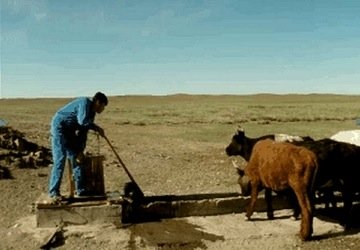CAMDA
Mongolian nomad pit wells
Livestock herding accounts for over 25% of Mongolias 2.7 million population with another 10% work-dependent on animal by-products. Rural dwellers, especially herders, are amongst the poorest citizens and this has been further worsened when the 2010 dzud climate disaster wiped out 9 million (20%) of the country's 44 million mixed livestock. Harsh climate conditions interspersed with droughts result in high animal mortality, leaving many heading families at or below subsistence level. A need was established for more watering points due to lakes, rivers and streams drying up which has resulted in conflict and over-use at existing watering points. River banks and verges are damaged as herders compete for limited resources.
Funds have been used to enable the renewal, replacement and digging of 15 new pit wells in Mongolia's Khuvsgul Province in grazing locations that lack adequate water. The wells result in reduced need for herd movement and thus less soil disturbance and healthier animals. Refurbished or new wells are handed over to the local community, and a project manager is responsible for the on-going maintenance and repair of the wells.


